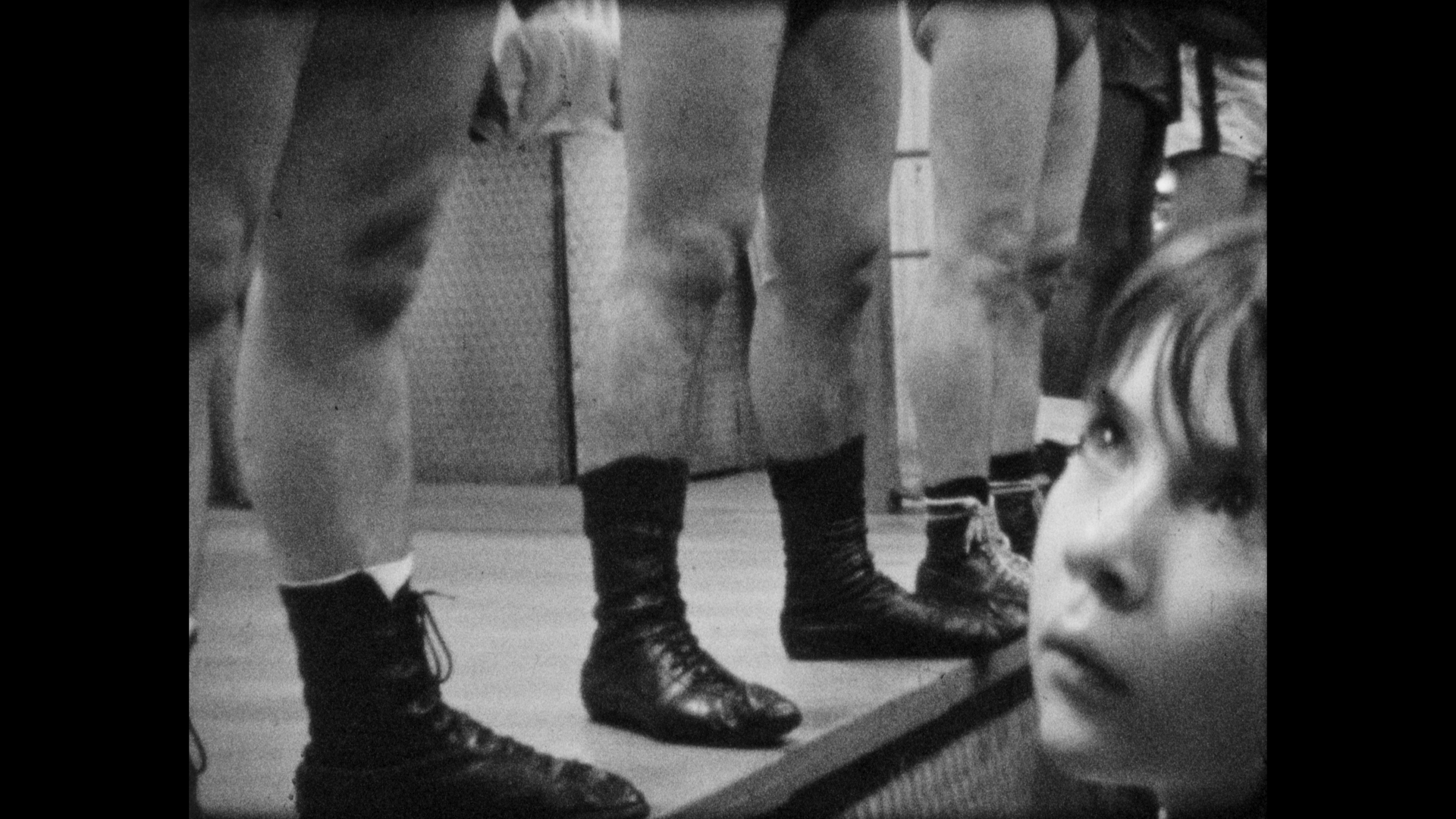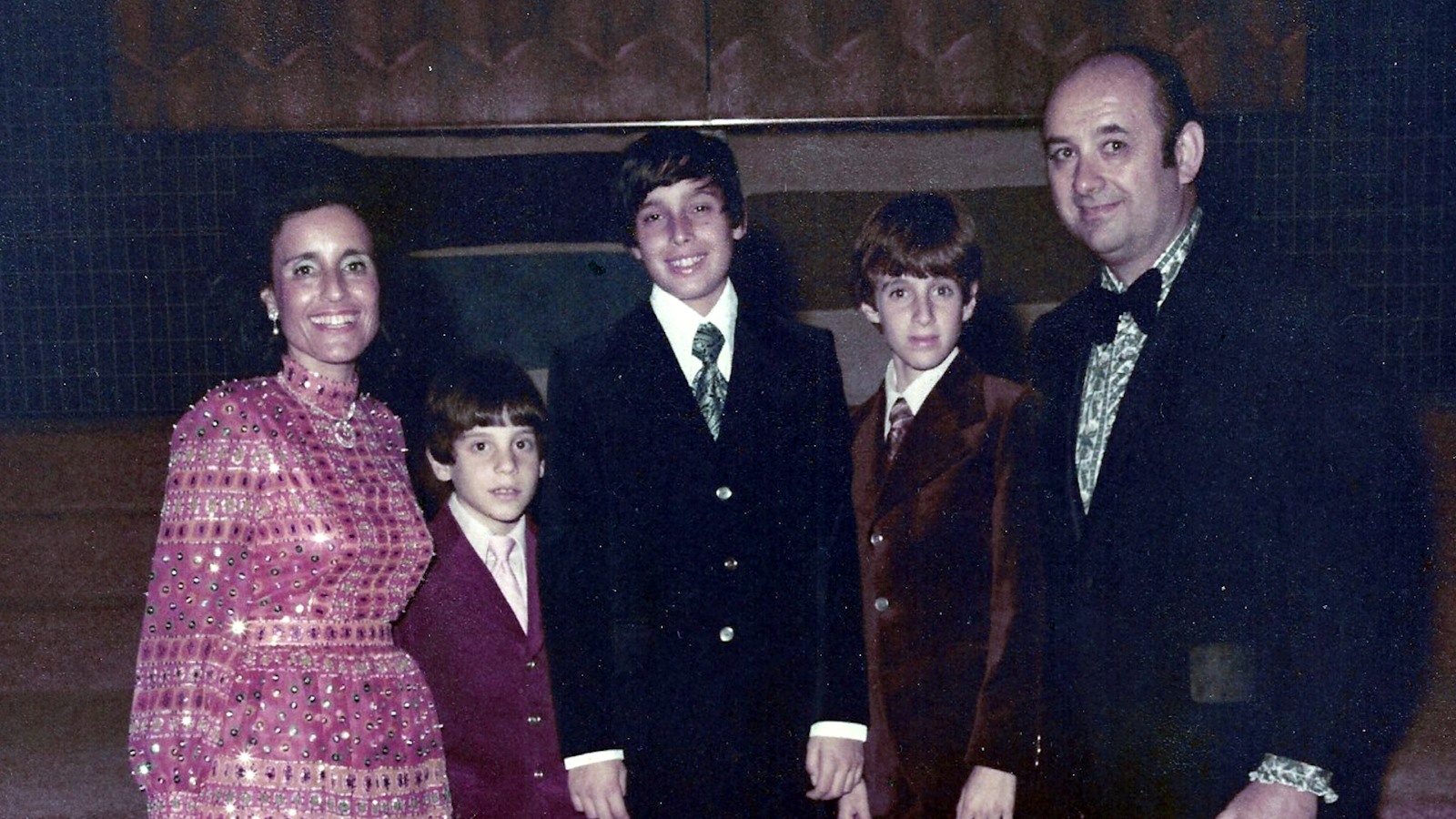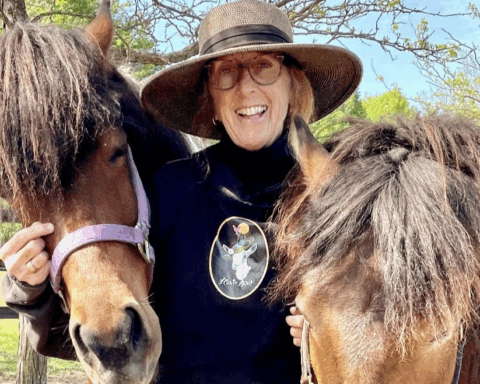Masters and innovators lead the line-ups for the Wavelengths and Classics programmes at this year’s Toronto International Film Festival. The line-up for TIFF’s experimental Wavelengths section enjoys an expanded presence this year and features some notable contributions from two late film pioneers. The early reels of Chantal Akerman screen with the posthumous 20-minute trailer for Jean-Luc Godard’s last unfinished work, Phoney Wars, in the Wavelengths shorts programme “Outlines” along with new work by Pedro Costa.
TIFF Wavelengths and Cinematheque senior curator Andréa Picard says the Outlines programme is a chance for cinephiles to see unique glimpses at the processes of three luminaries. Especially notable are the rare looks at Akerman’s early oeuvre. “They were shot on 8mm and they were her test rolls to get into film school,” explains Picard, speaking with POV by phone. “Her mother’s in them, her best friend Marilyn [Watelet], who she founded her production company Paradise Films with, is in the film, so you see this really young Akerman and the scenes are all laid out: domesticity, what women can do, portraiture of her mother. It’s very moving.”
The selections follow Picard’s eye for finding films that revolutionize the language of cinema in the way that docs like De Humani Corporis Fabrica delivered something entirely new to audiences at last year’s festival with its squeamishly up-close view of surgery. “Wavelengths is a delicate balance of established filmmakers and beginner auteurs who are using the language of experimental cinema to construct narrative works or works that use form in a non-classical way to make abstract films,” says Picard. “What makes the program so exciting is the complete breadth of cinema. We have an experimental, abstract silent 16-mm 90-second film that dips into queer abstraction, to the latest Wang Bing film Youth (Spring), which I think is a masterpiece and is one of the best documentaries of the year.”

Festival Favourites Come to Toronto
The three-and-a-half-hour Youth (Spring), which is still short by Bing’s standards, lands at TIFF after breaking the barrier at Cannes as a rare documentary in the official competition. Picard taps it as one of TIFF’s must-sees for anyone eager to explore the power of durational cinema and see a master in his element. The doc marks the first entry in a trilogy from Bing and observes youth labourers.
“He shot this film in Zhili, which is a garment district not far from Shanghai, where they have a lot of factories and they’re using young labor. It’s a comment on the new business of China,” Picard notes. “But not only are they working there for long hours, they’re actually living there as well, so the film has a carceral, claustrophobic feel, but you can tell that he spent so much time there. There’s a lot of trust. It’s also a very optimistic film—there’s incredible resilience and it requires the time that you spend with the workers.”
Other festival favourites landing in Wavelengths include the Berlinale winner Orlando, My Political Biography, the feature debut of writer/philosopher Paul B. Preciado (Testo Junkie). Orlando won four prizes at the Berlin Film Festival including the Teddy Award for Best Documentary. POV contributor Ezra Winton called it “a perfect merging of political theory, rebellious collective will, and radical imagination.”
Picard says Orlando was an early favourite while curating the line-up. She notes that Preciado’s first features impressed her with its cinematic letter thanking Virginia Woolf for her gender-bending novel Orlando and its role in trans liberation. “Preciado was asked to make a film about his life and, instead of doing that, he incorporates Orlando and the history of trans life, but also, he invites a number of non-binary performers to join in that celebration with him, so it has testimony from several Orlandos,” says Picard. “It’s joyous, but it’s also serious in terms of discrimination and how that’s woven into the legal and medical frameworks, identity, and borders. In the end, you’re left with a feeling of liberation and joy and a celebration of queerness.”
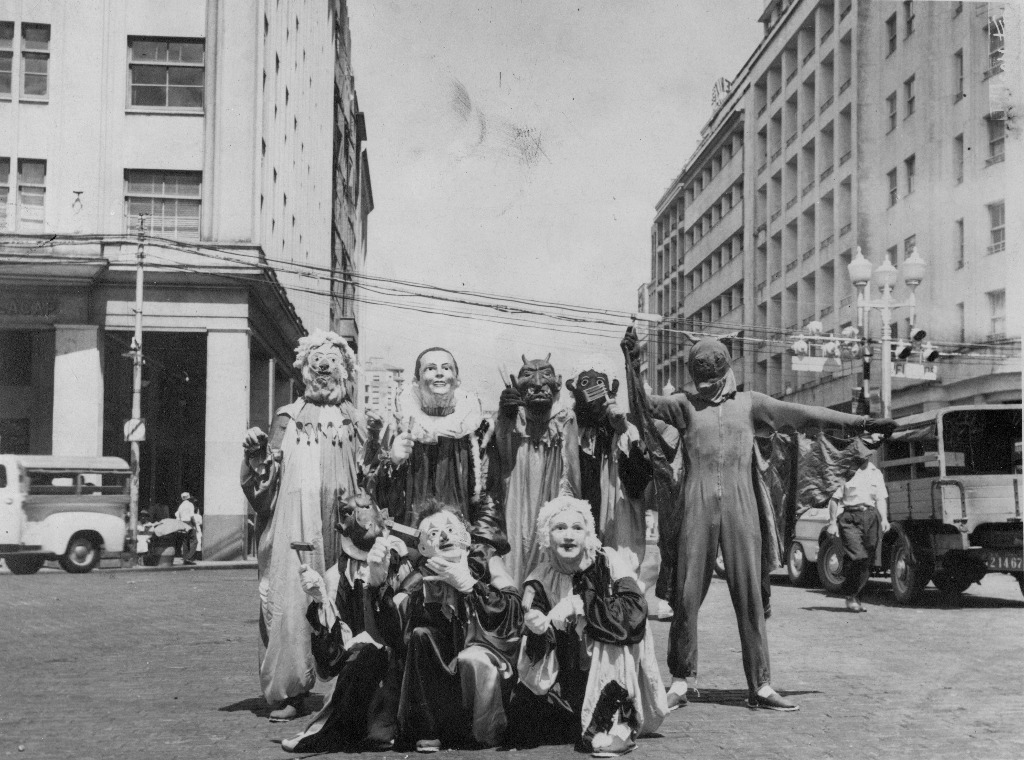
The Essay Film Is Alive and Well
Also new to the documentary crowd, but no stranger to festival audiences, is Brazilian master Kleber Mendonça Filho. The director brings his documentary Pictures of Ghosts to the Festival after screening his award-winning dramas like Aquarius (2016) and Bacurau (2019). The work is an essay film that explores aspects of cinema, urbanism, architecture, and (im)permanence. “It’s for anyone who loves cinema,” says Picard. “Kleber mixes a diaristic personal testimony with the city symphony of Recife, which is where he grew up and makes his work.”
The film begins in the house where Filho shot his first feature Neighbouring Sounds (2012) and expands outward to consider Brazilian society through a historical and cinematic prism. “It’s a very personal film that expands his universal realms of cinephilia, dealing with ghosts, and how film resuscitates people we love and moments that we’ve experienced in time,” says Picard. Pictures of Ghosts uses these images to consider the history of Brazilian film distribution and the gentrification of film palaces, among other threads.
Another artful fusion of the personal and the political comes from Filipino filmmaker Miko Revereza and his latest work, Nowhere Near. The film marks the third feature from Revereza, who immigrated to the USA illegally with his parents in 1990 and considers the politics of migration throughout his work, like No Data Plan (2019) and The Still Side (2021). “This film sees him finally leaving the US,” explains Picard, “and he goes back to Manila to see family. It’s a film about boundaries and passports and who has rights and privileges of movement; the visibility and invisibility of bodies.”
Nowhere Near situates Revereza’s experience of having to navigate documented/undocumented life to consider the plights of other migrants and asylum seekers caught in limbo. “It’s so pertinent to the conversations happening now, but it’s also tied to his own artwork and growth through filmmaking,” says Picard. “It’s a great work that questions what cinema can do and how testimony can provide resilience.”
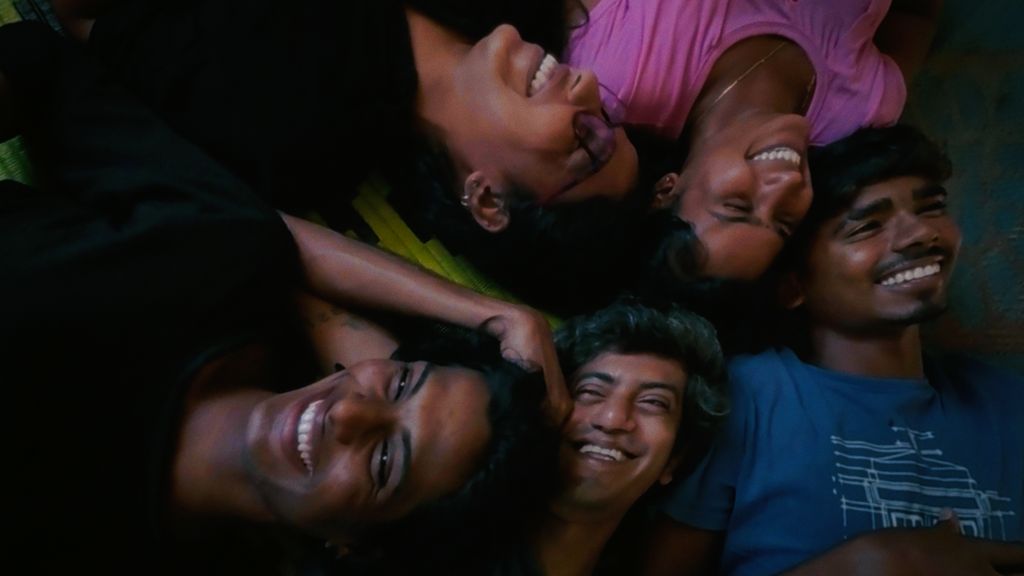
Films Blur Genre and Form
The Wavelengths programme further explores the politics of place in a film like The Human Surge 3, a sequel to the 2016 film directed by Eduardo Williams. (Picard notes that there isn’t a Human Surge 2, so readers can have an idea of what they’re in for with Williams’ sense of play.) Like his previous film, Williams invites audiences to immerse themselves in a cinematic experience they can’t quite find words to express as wander the Earth with hopes to escape their jobs. Picard also notes that it’s a great example of technical innovation in the line-up and offers something viewers haven’t seen before.
“Teddy shot this film with a 360° camera that’s normally used in VR, but it’s retrofitted for the cinema. It looks really oozy and porous,” says Picard. Human Surge 3 blends the strange and familiar with techniques that harness daily life with a speculative twist. “He shot it in Peru, Sri Lanka, and Taiwan using non-professional actors from each region, largely queer communities. It’s a film about the transgression of boundaries, languages, waking life, dream life, online life, and gender. I think it’s one of the best films of the year.”
The programme also welcomes back another fresh voice in festival favourite Isiah Medina, the Winnipeg filmmaker who had a breakout with 2016’s 88:88. Medina returns to Wavelengths with the world premiere of He Thought He Died, which offers a unique twist on genre. “It’s a traditional heist film where a painter wants to steal back his work from a vault in a museum, but within that typically Isaiah video diary style with his friends,” says Picard. “It’s also an elevated piece of filmmaking and you see the evolution of his filmmaking.” He Thought He Died gets the only feature-short pairing in Wavelengths. It screens with Toronto filmmaker Blake Williams’ Laberint Sequences, a 3D work starring Deragh Campbell (Anne at 13,000 ft.), a structuralist film that Picard says is closest in Wavelengths to the work of programme namesake Michael Snow.
Other Wavelengths highlights include Denis Côté’s Mademoiselle Kenopsia, Rosine Mbakam’s Mambar Pierrette, Angela Schanelec’s Music, and Phạm Thiên Ân’s Inside the Yellow Cocoon Shell, which won the Camera d’Or at Cannes, all of which have their North American premieres at TIFF.

An Oscar Winner Returns
On the side of TIFF Classics, the Festival will screen the world premiere of a new restoration of Brigitte Berman’s 1985 documentary Artie Shaw: Time Is All You’ve Got. The film about the famed clarinetist won the Academy Award for Best Documentary Feature—one of only three Canadian features to do so.
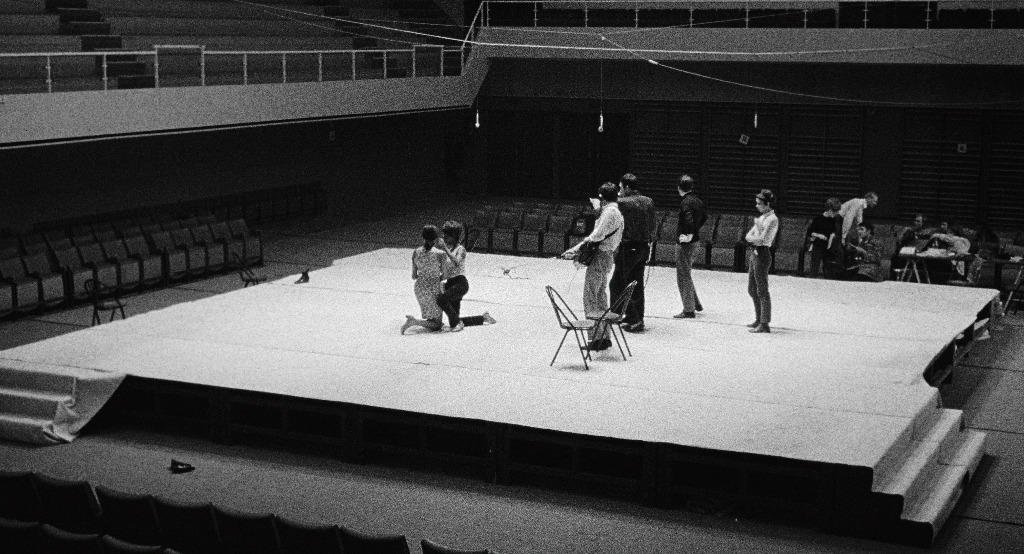
Classics also features a restoration of Jacques Rivette’s L’Amour Fou, which kicked off the Cannes Classics series this year. The film is a unique work that explores the malleability of fiction and non-fiction with its portrait of a couple consumed in a toxic relationship, yet captured by the prying eyes of a camera. Picard notes that the restoration draws upon the mix of 35mm and 16mm images of the rarely-seen film, which has long been out of circulation because the original negative burned in a fire. “This film has been meticulously pieced together under the supervision of the cinematographer Caroline Champetier,” notes Picard. Additionally, the four-and-a-half-hour L’Amour Fou offers a master class in film theory and history as it illustrates foundational elements of Rivette’s interest in durational cinema and the collision of forms.
“Rivette was always interested in the intersections between theater, film, and life. Out 1 is his iconic long film, but this is the film that really introduced those techniques. In fact, it’s shot on 35mm and 16mm, but he employed an external independent TV crew that was led by André Labarthe,” adds Picard. “It’s a difficult film to watch, but the duration is important as is the blurring of boundaries. It is a quasi-documentary in its making and feel, but Rivette was one of the ones to say that a film is always a documentary of its own making.”
Artie Shaw and L’Amour Fou are both free to the public as part of the Classics programme on a first come, first served basis. So too are the screenings of the restoration of the uncut version of Chen Kaige’s Palme d’Or winner Farewell My Concubine (1993), which restores over 15 minutes of footages excised by notorious distributor Harvey Weinstein; Djibril Diop Mambéty’sTouki Bouki, and Ousmane Sembène’s Xala. The latter two mark a notable showcase of Senegalese cinema. Year-round screenings of TIFF Cinematheque and Wavelengths are also available for free to TIFF members at the Lightbox, which have been consistently drawing full houses in an initiative that Picard says is bringing new energy to the Toronto cinema.
The full list of TIFF Wavelengths and Classics for 2023 is as follows:
*Films marked with a “Luminaries” label indicate works by noted auteurs as a revision of the discontinued Masters programme, which now disperses films by veteran masters throughout the programming.
WAVELENGTHS FEATURES
Do Not Expect Too Much from the End of the World
Radu Jude | Romania/Luxembourg/France/Croatia | North American Premiere
Here
Bas Devos | Belgium | North American Premiere
The Human Surge 3
Eduardo Williams | Argentina/Portugal/Brazil/Netherlands/Taiwan/Hong Kong/Sri
Lanka/Peru | North American Premiere
Inside the Yellow Cocoon Shell
Phạm Thiên Ân | Vietnam/Singapore/France/Spain | North American Premiere
Mademoiselle Kenopsia
Denis Côté | Canada | North American Premiere
Mambar Pierrette
Rosine Mbakam | Belgium/Cameroon | North American Premiere
Music
Angela Schanelec | Germany/France/Serbia | North American Premiere
Luminaries
Nowhere Near
Miko Revereza | Philippines | North American Premiere
Orlando, My Political Biography
Paul B. Preciado | France | Canadian Premiere
Pictures of Ghosts
Kleber Mendonça Filho | Brazil | North American Premiere
Youth (Spring)
Wang Bing | France/Luxembourg/Netherlands | North American Premiere | Luminaries
WAVELENGTHS PAIRINGS
He Thought He Died
Isiah Medina | Canada | World Premiere
preceded by
Laberint Sequences
Blake Williams | Canada | North American Premiere
WAVELENGTHS SHORTS
Wavelengths 1: Quiet as It’s Kept
Borrowing its title from Ja’Tovia Gary’s latest film, this programme invites and encourages alternate modes of seeing ― through queer abstraction, repurposed fragments, and imagined memories ― as well as new forms of listening: to others, to ourselves, and to the natural world.
Bouquets 31-40 Rose Lowder | France | Canadian Premiere
Film Sculpture (1) Philipp Fleischmann | Austria | World Premiere
Film Sculpture (2) Philipp Fleischmann | Austria | World Premiere
Film Sculpture (4) Philipp Fleischmann | Austria | World Premiere
Film Sculpture (3) Philipp Fleischmann | Austria | World Premiere
It follows It passes on | Erica Sheu | Taiwan/USA | World Premiere
Mast-del Maryam Tafakory | United Kingdom/Iran | North American Premiere
Shrooms Jorge Jácome | Portugal | World Premiere
Quiet as It’s Kept Ja’Tovia Gary | USA | International Premiere
Wavelengths 2: Sundown
With sensory delights, overloads, and mysteries, this programme probes the hallucinatory underpinnings of the world around us and its layered, incongruous temporalities.
Let’s Talk Simon Liu | Hong Kong | World Premiere
Light, Noise, Smoke, and Light, Noise, Smoke Tomonari Nishikawa | Japan | World Premiere
NYC RGB Viktoria Schmid | Austria/USA | Canadian Premiere
Slow Shift Shambhavi Kaul | India/USA | World Premiere
Sundown Steve Reinke | USA/Canada/Austria | World Premiere
We Don’t Talk Like We Used To Joshua Gen Solondz | USA/Japan/Hong Kong | World Premiere
Wavelengths 3: Outlines – Akerman/Costa/Godard
Bookended by a recently discovered and restored suite of Chantal Akerman’s first cinema forays and the legendary Jean-Luc Godard’s final testament, alongside the latest mesmerizing film by Pedro Costa, this special programme pays tribute to a trio of iconic artists and their intoxicating, enticing approach to sketches and outlines as a means of expression.
Chantal Akerman: Her First Look Behind the Camera Chantal Akerman | Belgium | North American Premiere
The Daughters of Fire Pedro Costa | Portugal | North American Premiere
Trailer of the Film That Will Never Exist: Phony Wars | Jean-Luc Godard | France/Switzerland | North American Premiere
Classics
Artie Shaw: Time Is All You’ve Got
Brigitte Berman | Canada
Farewell My Concubine
Chen Kaige | China/Hong Kong
L’amour fou
Jacques Rivette | France
Touki Bouki
Djibril Diop Mambéty | Senegal
Xala
Ousmane Sembène | Senegal
TIFF runs Sept. 7 to 17.




